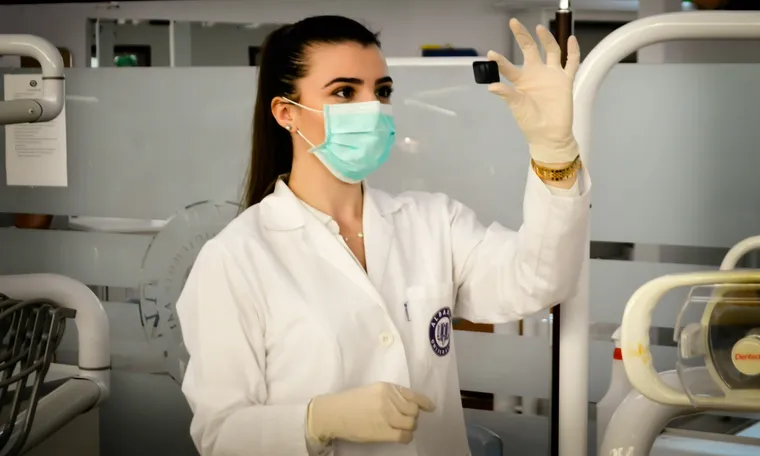As we age, maintaining good oral health becomes increasingly important. For seniors, dental care is not just about having a bright smile; it is essential for overall health and quality of life. Unfortunately, many older adults face unique challenges when it comes to dental care, including increased risk of oral diseases, mobility issues, and financial constraints. Explore the significance of dental care for seniors, the common oral health issues they face, and the importance of regular dental visits.
The Link Between Oral Health and Overall Health
Oral health is closely linked to overall health, and this connection becomes even more critical as we age. Poor oral hygiene can lead to a range of health problems, including heart disease, diabetes, and respiratory infections. For seniors, these risks are heightened due to a weakened immune system and the presence of other chronic health conditions. Maintaining good oral health helps prevent these complications and contributes to a healthier, longer life.
Common Oral Health Issues in Seniors
Seniors are more susceptible to various oral health issues, some of which can significantly impact their quality of life. These issues include:
- Gum Disease: Also known as periodontal disease, gum disease is a common problem among older adults. It can lead to tooth loss, pain, and difficulty eating. In severe cases, it can also increase the risk of heart disease and stroke.
- Tooth Decay: As we age, the enamel on our teeth can wear down, making them more vulnerable to cavities. Seniors may also experience dry mouth due to certain medications, which can further increase the risk of tooth decay.
- Tooth Loss: Many seniors face tooth loss due to years of wear and tear, gum disease, or other oral health issues. Missing teeth can make it difficult to chew and speak, affecting nutrition and social interaction.
- Oral Cancer: The risk of oral cancer increases with age, particularly in individuals who smoke or drink alcohol. Regular dental check-ups are crucial for early detection and treatment of oral cancer.
- Denture-Related Issues: For seniors who wear dentures, proper fit and maintenance are essential. Ill-fitting dentures can cause sores, difficulty eating, and even infections. Regular dental visits ensure that dentures fit correctly and remain in good condition.
The Importance of Regular Dental Visits
Early intervention can prevent minor problems from becoming more severe and costly to treat.
During a dental visit, the dentist will perform a thorough examination, which may include X-rays to check for hidden issues such as bone loss or cavities between teeth. The dentist will also clean the teeth, removing plaque and tartar that can lead to gum disease and tooth decay. For seniors with dentures, the dentist will check the fit and condition of the dentures and make any necessary adjustments.
Overcoming Barriers to Dental Care for Seniors
Despite the importance of dental care, many seniors face barriers that prevent them from receiving the care they need. Some of these barriers include:
- Mobility Issues: Seniors with mobility challenges may find it difficult to visit a dentist's office. Home visits by dental professionals or transportation services can help overcome this obstacle.
- Financial Constraints: Dental care can be expensive, and many seniors are on fixed incomes. However, there are options available, such as dental insurance plans for seniors, Medicare Advantage plans that cover dental care, and community health programs that offer reduced-cost or free services.
- Lack of Awareness: Some seniors may not be aware of the importance of regular dental care or the availability of services. Education and outreach programs can help inform seniors about the importance of oral health and how to access care.
Tips for Maintaining Oral Health at Home
In addition to regular dental visits, seniors can take steps at home to maintain their oral health. These include:
- Brushing Twice a Day: Using a fluoride toothpaste, seniors should brush their teeth at least twice a day to remove plaque and prevent cavities.
- Flossing Daily: Flossing helps remove food particles and plaque from between the teeth and along the gum line, reducing the risk of gum disease and cavities.
- Staying Hydrated: Drinking plenty of water can help prevent dry mouth, which is a common issue among seniors and can lead to tooth decay.
- Eating a Healthy Diet: A balanced diet rich in fruits, vegetables, and dairy products can support oral health by providing essential nutrients for strong teeth and gums.
- Avoiding Tobacco and Limiting Alcohol: Smoking and excessive alcohol consumption can increase the risk of oral health issues, including gum disease and oral cancer.
Conclusion
Dental care is a critical aspect of overall health for seniors. By maintaining good oral hygiene, attending regular dental visits, and addressing any barriers to care, seniors can enjoy better oral health and a higher quality of life. Investing in dental care today can help prevent more serious health issues down the road, making it an essential part of healthy aging.

